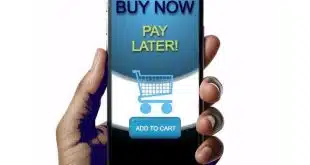Hard on the heels of its announcement last week that it is now processing for some 2 million merchants and individuals, mobile-acceptance startup Square Inc. on Tuesday said it has added customer-loyalty functions to its Pay with Square and Square Register applications. The new functions will allow both merchants and customers to keep track of purchases that can be used towards a reward, much in the manner of a punch-card program.
Square Register, which works on the Apple iPad tablet and is aimed at small businesses, will now also include the ability to offer customers specials on their first visit and what Square calls “customizable punch cards.” That means “merchants can choose how they wish to set these offerings for consumers–whether based on amount spent or times visited,” says a Square spokesperson by e-mail. The enhancement also features in-app reporting of real-time sales data.
Pay with Square, intended for use by consumers on both iPhone and Android handsets, now includes the ability to automatically record purchases on an in-app punch card. The enhancement also enables “consumers to see first-visit specials around them at merchants they may not have previously visited in the Square directory,” says the spokesperson.
The new loyalty applications could help Square attract more of the larger businesses it has begun to court, say some observers, as these merchants tend to expect such features. “I don’t think it’s critical to keeping merchants signing up at this point, but it is critical to keep merchants around for a long time as well as to attract larger merchants,” notes Rick Oglesby, a senior analyst at Boston-based Aite Group LLC who follows mobile payments. “As [Square grows] and as their merchants grow, they need a broader product set, something we’ve been seeing from them with Square Register and the enhancements to Pay with Square.
Indeed, signing merchants isn’t a problem right now for San Francisco-based Square, which was founded only in 2009 and began operations in 2010. The 2 million merchant users it announced last week represents a doubling of the number it had released six months ago. Processing volume is now at $6 billion on an annualized basis, up from $5 billion in April.
A slew of mobile-payments applications for merchants has appeared in recent months, some of them featuring loyalty functions and some from major providers such as PayPal Inc. Last week, Apple Inc. announced it will include a digital wallet called Passbook in iOS 6, the latest version of its mobile operating system expected this fall. But Oglesby says Square’s latest enhancements aren’t likely meant to ward off competitors. “Square is still the leader in this space and I don’t think announcements by others will cause them to make a shift in strategy,” he says in an e-mail message. “They’ll shift if they see themselves losing share to others, but that hasn’t started happening yet.”
The Square spokesperson did not comment on the strategy behind the loyalty features beyond saying, “We believe that these new updates enable merchants and consumers to build more meaningful relationships that focus on the experience and interaction, rather than the mechanics of a payment.” She points out that the updates build on a loyalty feature Square introduced in November, which let merchants identify so-called regular customers based on criteria they set.
Both Square Register and Pay with Square are distinct products from Square’s original application, an app that allows merchants and persons to accept card payments using a cube-shaped dongle that attaches to a smart phone via the device’s audio jack. Pay with Square, originally called Card Case, was introduced in May 2011 and allows users to automatically open a tab with a merchant when nearby and to buy merchandise in the store using only a name. Square Register was introduced in March.






